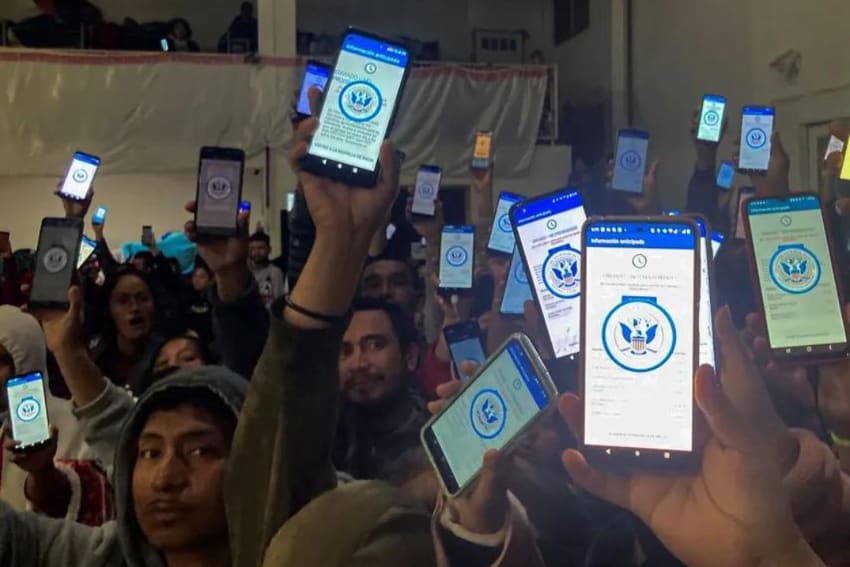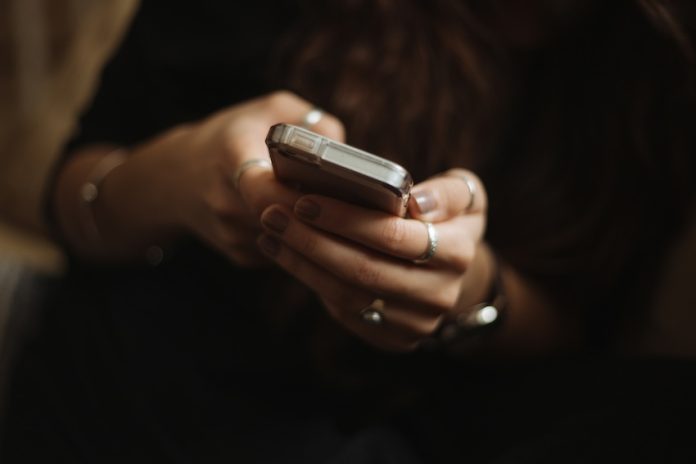I have an ambivalent relationship with my cell phone.
It seems I depend on it for everything these days: communication, entertainment, organization. At times I decide — in disgust, always — that I’m going to designate cell phone-free periods.

Obviously, that never happens.
For better or worse, we now live in a world in which we must keep our cell phones closer than even our darkest secrets, lest we cease to function. We dutifully do so, but if you’re like me, don’t feel fantastic about it. If we don’t, how will we get our messages? How will we get our news? How will we know what time that one meeting, also on a cell phone, is scheduled?
Your cell phone is you
Like everyone else, I have a smartphone. I even just upgraded! Unlike everyone else — at least when it comes to my paisanos — my cell phone and cell phone number are Mexican.

For quite a long time, this wasn’t a problem. Mexican cell phone plans tend to be pretty good and are fairly economical. Most phones for sale are “unlocked” and fit a physical SIM card inside, making it easy to change the hardware. Telcel is the most common provider, and Movistar and AT&T can also be found easily. Abandoning one for another is not hard.
For years, I’ve been perfectly happy with this system. My Mexican number is essential for certain app-based services, like my local bank. I send and receive messages through WhatsApp, as most people here do, and can share my number easily.
Did you know that people here give their phone numbers in pairs rather than a three-three-four pattern, by the way? So 219-345-1234 would be said like this: 21-93-45-12-34. It’s been over 20 years and I’m still not used to it. Anyway!
In many ways, my Mexican cell phone is my identifier here.
Unfortunately, my U.S. cell phone number is my identifier there. Oh no!
Revenge of the pick-a-side people
Increasingly, not having a U.S. cell phone as a U.S. citizen is making it impossible to do business in the U.S.
Why? Because one’s U.S. cell phone — and it has to be a U.S. cell phone — is now the preferred and only method of two-factor identification. “Okay, just to make sure it’s you, we’ll send you a code! What’s your cell phone number again? No room for ‘country code,’ by the way.”

Legally, as a U.S. citizen and tax-payer, I am entitled to U.S. services and products — I think. In my case, it’s quite a gray area: I can be out of the country, but I need to have certain markers of not being out of the country to access certain services. This includes a permanent address and a U.S. cell phone. You’re all here, or you’re all there. Pick a side.
The permanent address is easy enough. My sister is my U.S. home, and therefore lives at my U.S. address. Done.
The cell phone is trickier. As I said, I haven’t had a U.S. number because I haven’t been in the U.S. long enough to justify getting a plan there. Plus, they’re so much more expensive than down here. Why would I?
To get access to my bank and credit card accounts, that’s why.
Sorry, who are you?
My troubles have made me realize that my problem is unique. Few U.S. citizens who still want to use U.S. services have been here as long as I have. And spoiler alert: neither Skype nor Google Voice numbers work for getting codes. Providers know they’re not real, and will not send texts there. My sister’s number works for most other things, but it depends, of course, on her being available. Certain places, though, won’t even send them there; the phone number doesn’t have my exact name tied to it, and they know.
When my Capital One account stopped sending verification codes to my email instead of a phone, I lost online access. To pay my bill now, I have to call.
Unfortunately, that is no longer enough, either. When my card was blocked recently — it happens once in a while — I called to reassure them that yes, it was me, in Mexico.

This time, though, it happened: in order to confirm it was really me, I had to read back to them the code they sent… to my U.S. phone.
Uh-oh.
What did this mean? It means that my card is still blocked. I had to send them a copy of a state-issued ID that wasn’t a passport. It’s been in review for a week now, with no end in sight. They literally do not know what to do with me.
The lesson for you
So folks, whatever you do: don’t give up your home-country cell phone number. Switch to a cheaper plan, fine. Get a Mexican number, yes. Maybe get a phone with a dual-SIM card space. But don’t, I repeat, do not, be caught trying to use home-country services without a home-country phone.
As for me, I’ll likely be making a trip to the U.S. soon just to get a blasted phone and a number. Because nuance isn’t a thing when it comes to verification codes.
Sarah DeVries Sarah DeVries is a writer and translator based in Xalapa, Veracruz. She can be reached through her website, sarahedevries.substack.com.
